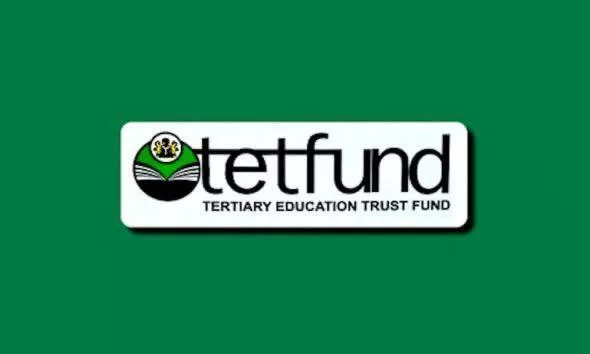Globally, digital literacy has become indispensable for every citizen, whether to communicate, find employment, receive comprehensive education, or socialise.
In Nigeria, the importance of digital literacy cannot be overemphasised. Acquiring the right set of digital skills is not only important for learning and workforce readiness but also vital to the economic development of a nation.
In Today’s world, digital literacy is not an option but a requirement for any individual to be considered competitive and best prepared.
Already, the Nigerian government is targeting to achieve a 95 percent literacy level in the country by 2030.
To complement that effort, the Tertiary Education Trust Fund (TETfund), under its executive secretary, Arch. Sonny Echono is adopting strategies to address digital literacy and skill-building.
The Fund recently inaugurated a committee on digital literacy, to advance the course of Information Technology (ICT) in the country.
The Committee is been headed by an Emeritus Professor of National Open Open University of Nigeria (NOUN)Olugbemiro Jegede and has other members from university community, National Information Technology Development Agency (NITDA), ICT consultants, TETFund directors of research, Academic Staff training and development in IT.
The Committee’s terms of reference are to develop a Higher Education Digital Literacy and Emerging Skills Policy and Strategic Action Plan for the implementation of the policy towards effective delivery of digital literacy and emerging skills, training and certifications at TETFund, NUC, NBTE, NCCE and all other regulated tertiary institutions.
It will also develop, adopt, or adapt (where possible) digital literacy standard that addresses national needs as well as enables workforce, students and graduates of Nigerian tertiary institutions to skill or retool as technology evolves and adopt, or adapt one or more assessment and certification frameworks in line with global standards.
Speaking during the inauguration, Echono said the constitution of the team became necessary given the demand for technology in today’s world, not only in tertiary education but Nigeria’s economy.
He said other members of the committee include Professor Musa Ahmed, the Vice Chancellor of the Federal University of Agriculture, Zuru, Dr Usman Gambo Abdullahi, director IT infrastructure solution, National Information Technology Development Agency (NITDA), Dr
Rislana Abdulazeez Kanya, Deputy Vice-Chancellor, IT, Research and Innovation, Baze University as a member, among others.
Echono said, “As you all know, digital literacy is a foundation issue of success in today’s technology driven world, regardless of educational goals, career pursuit or job functions.
“As the world and indeed Nigeria continue to grapple with the growing jobs crisis, most Nigerians across all categories of the workforce lack the basic technological skills needed for real business application.
“Therefore, proficiency in digital literacy is no longer an option, it is the prerequisite, it is the requirements. Our beneficiary institutions must play a crucial role in achieving these requirements.
“I’m also aware that various policy frameworks exist in the Ministry of education as well as the Ministry of Communication and Digital Economy with a target to achieve 60 percent digital literacy for youths and adults by 2025.
“Again, we also have the Nigeria National broadband brand that also targets about 95 percent digital levels to be achieved across states and local governments by 2030.”
He noted that TETfund has found itself in a critical role and the Fund must play its role in reaching these targets through interventions to beneficiary institutions across various states and local governments where the bulk of the youth population pass through to enter the workforce.
He added, “With a view towards achieving this, and to do more, we are inaugurating this advisory committee today to show us the part way and work out the necessary steps to doing so and I’m very encouraged by the remarks of the chairman of the committee, who tells us exactly what the magnitude and complexities of the challenge before us is.
“Under the able chairmanship of Emeritus Professor Olugbemiro Jegede, with members from our universities, NITDA, ICT consultants, TETFund directors of research, Academic Staff training and development in IT, it is envisaged that we will receive a more holistic and comprehensive plan that will increase our efforts towards digital literacy and for the purpose of the exercise today, let me indicate the composition of this committee and the various roles members are supposed to play.
“One of the major interventions we are trying to do here is to digitalise all our academic records and repositories where you can access this and people can benefit from it.
“As part of the component, also we will develop a device that will capture our own local thesis this time because the current system we use, the thesis reproduced in this country are not in the database and it is difficult to cross check them but now that we are going to have all our thesis digitalised.
“This is a composition of a team that was given this task and we believe that given the type of enthusiasm and the initial steps already taken we will be able to accomplish this task in record time,” the executive secretary said.
Echono further said digital literacy presents many opportunities through several inter-connected areas and the beneficiary institutions and Nigerian students are already engaging with digital technologies and digital media and using them to find information and to communicate meaningfully in different roles and formats, saying this provide significant opportunities and challenges that it is important to address.
“Consequently, the need arises to create a pool of knowledgeable and skilled manpower that will facilitate technology and skill acquisition, assimilation and the future mobility and general productivity.”
He also charged the committee to bring the framework for amplifying the efforts towards digital literacy productivity and emergent skills.
On his part, the chairman of the committee, Olugbemiro said the Strategic Action Plan shall include: Definition of the basic elements of digital literacy and yearly targets; description and articulation of a continuum of skills required for Digital Literacy, strategies and actions for incorporating Digital Literacy into workforce training at TETFUND, NUC, NBTE, NCCE and all categories of regulated Tertiary Institutions, strategies and actions for incorporating Digital literacy into all levels and categories of tertiary education in Nigeria, recommendation of curricula consistent with the assessment frameworks, amongst others.
He commended the Echono and TETfund for its commitment towards ensuring digital Literacy in the country.
“I’m so happy that the group that has been put together is a very formidable one and we appreciate the way you have stretched yourself even beyond TETfund doing a lot of things in other areas and we want to thank you for this.
“Nigeria will continue to be grateful to TETfund and to your particular time in office because this is epoch making history, you won’t know until a few months from now when we put a road map and things Begin to work.
“On behalf of everybody in the committee I want to thank you for finding us worthy to be nominated into this Committee. The other one is to assure you and each one of us is ready to work in this area that you have brought us to do.
“I also hope that at some stage we will be able to inform Nigerians about some differences that are there. Some universities talk about digitisation when they should be talking about digitalisation and there are two different things and I do hope that we begin to make a difference from them,” he said.
Also speaking, the Vice Chancellor of the Federal University of Agriculture, Zuru, Professor Musa Ahmed, commended TETfund for the initiative, saying that most universities are doing a lot in promoting digital literacy in the country.
“We have done this in many areas. I started with this, initially at the University of Ilorin where we developed the skill acquisition as part of the requirements for graduation and we developed a book in that direction at the University of Ilorin.
“Then here in Federal University of Agriculture Zuru, we are doing a lot so I would like to thank the ES TETfund who was originally a proposal of this project.
“I have mentioned when he was the perm sec before he retired and I look at it that for us in the specialised universities of agriculture, we are happy with TETfund because if you combine the experiences of agriculture, education and also TETfund being on that board for a while, so I’m calling on chairman of the team that I will be very available to contribute my quota in this direction and honestly, at my university we have been working when we are called upon to contribute towards proposing the topics that should be used to train people in this areas,” he said.











